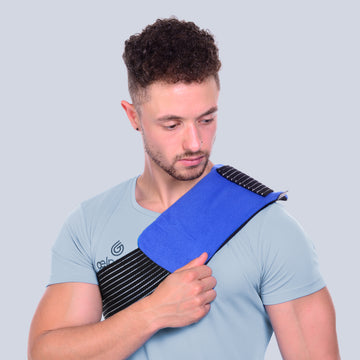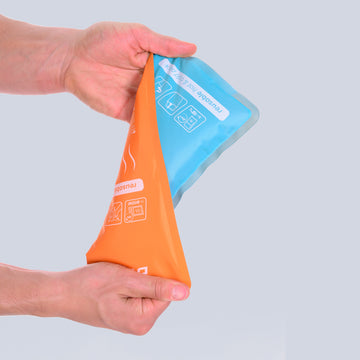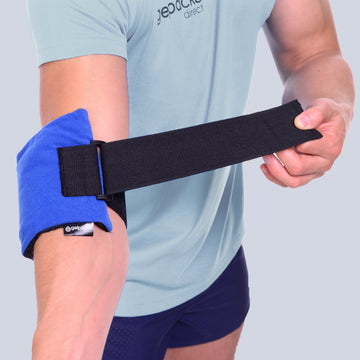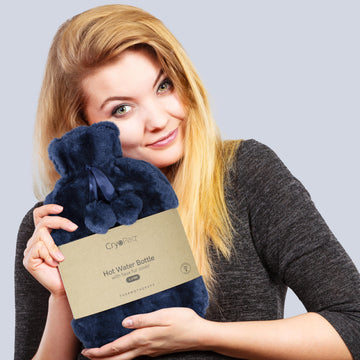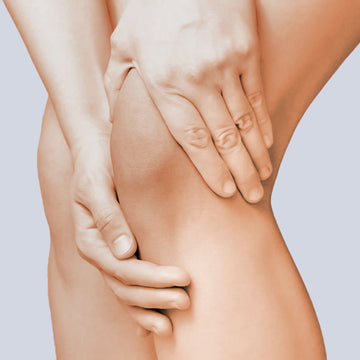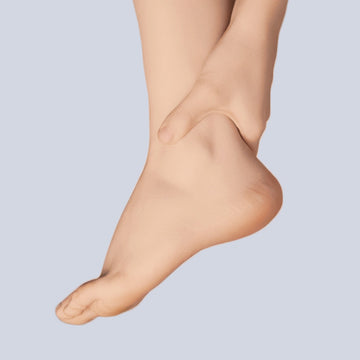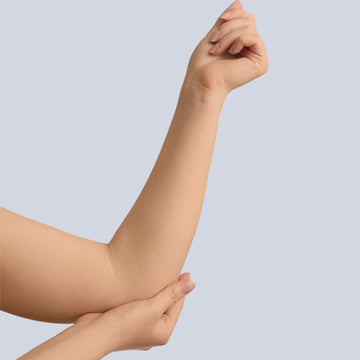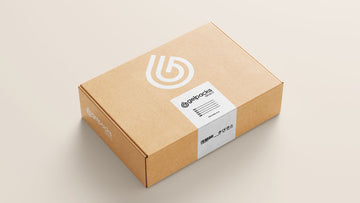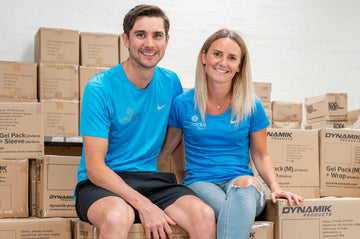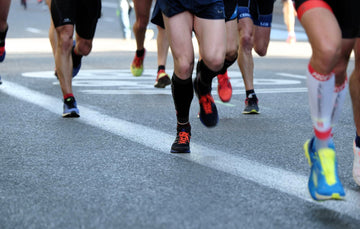Posted by Tia Patel | Jan-26-2021
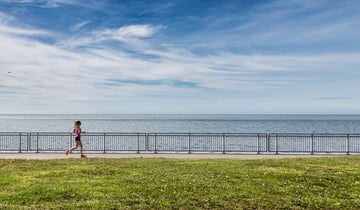
How to start running for beginners
According to Strava, runners in the UK and Ireland ran a total of 527.6 million km in 2020.
Running is enjoyed by millions of people worldwide because it's good for your body and mind and it requires very little equipment. All you need is a good pair of running shoes and the willingness to get started.
Interested in starting your journey into running? We’ve got everything you need to start your running journey including 15 benefits of running, methods for getting started, 6 tips for avoiding injury and 5 tips for making running a habit.
What are the benefits of running
1. Running makes you fitter.
2. Running can be a smart strategy for weight loss.
Check out these tips for losing weight without dieting
3. Running is an excellent stress reliever and antidepressant to help you overcome daily stress.
Read our guide to running for mental health
4. Run by yourself for peace and solitude, or with others for social interaction.
5. You release endorphins when running and may even experience a runner’s high.
6. Running provides motivational targets for exercise.
7. Running is cheaper paying for a gym membership.
8. You achieve better overall health with improvements such as higher lung capacity, increased metabolism, lower total cholesterol levels, increased energy, and decreased risk of osteoporosis.
9. Increase productivity in your work life.
10. Catch a runners high.
11. Improvements in sleep.
12. Stimulates growth of fresh grey matter in the brain.
13. Boosts sexual arousal in women and reproductive potential in men.
14. Look better and feel stronger.
15. Live a longer life.
Getting started on your running journey
- Warm up to avoid injury before you start running. Walk or do an easy jog for 5 to 10 minutes, before increasing your intensity. You might also add warm-up exercises such as dynamic stretches or running drills.
- Don’t run before you can walk……...The run walk method is a great way to start your running program by combining your runs with intervals of walking. For many new runners, this is the easiest way to build endurance with less stress on the joints and a manageable intensity level. Simply start with one minute of running and one minute of walking, and then try to increase the running intervals. As you become more comfortable, make the switch to all running. No race disqualifies participants for walking at some point and It is not uncommon for participants in longer races to take a short walking break.
TeamGPD Top Tip: We recommend using the Couch to 5K app for anyone looking to get more active, fitter and healthier. It's a free NHS app following a 9 week plan for people who want to start running but don't know where to start. The app will tell you when to walk and when to run taking away all the stress of you having to figure it out yourself.
- Proper form - Whilst running is a natural movement that doesn't mean that you can't improve certain aspects of your running form to improve your experience. Practicing good posture, monitoring your foot strike and arm swing will all improve your form.
How to avoid running injuries
1. Increase mileage slowly - build your weekly mileage by no more than 10% per week.
2. Good shoes - With so many varieties of brands, models, types and technologies or running shoes, it’s important to get the one that offers the best support and fits your anatomy and biomechanics of your feet . We recommend visiting a running shop for a proper assessment and fit by qualified staff who will assess the way you walk or run and gain a proper understanding of your needs to help find the best shoe for you. Don’t forget you’ll need to replace shoes every 300 - 500 miles to avoid injury due to the shoes wear and tear.
3. Cross train - Runners can benefit from cross training activities to improve muscle imbalances and stay free of injury. Activities like swimming, elliptical training and rowing will allow you to continue burning calories and boost aerobic fitness without the added pressure of pounding the pavement.
4. Strength train - Strength work accomplishes three goals for runners: it prevents injuries by strengthening muscles and connective tissues, it helps you run faster by boosting neuromuscular coordination and power and it improves your running economy by encouraging coordination and stride efficiency.
5. Post run nutrition - your post run recovery meals should consist of carbohydrates and plenty of protein to allow your body and muscles to re-fuel, replenish and recover so you can get on with the rest of your day injury free.
6. Listen to your body - slow down of rest when needed to allow your body to recover and avoid injury. Rest days will help us run faster, avoiding injury whilst keeping our spirits motivated to continue training and avoid injury.
Click here for tips on what to do on rest day
7. Use a gel pack cold immediately after running to treat any niggles before they prevent you from running. Applying an ice pack will decrease fluid buildup and swelling at the site of injury by constricting blood vessels and slowing down the metabolism of the cells. Nerve endings at the site of the injury are numbed which decreases their ability to send impulses perceived as pain to the brain.
Here's Fede Spinetta with his story on navigating injury as an athlete
How to make running a habit
It’s believed that it takes on average 66 days for a habit to stick, so here's our tips for making running a part of your routine:
-
Make a plan - Running at the same time will help make running a part of your daily or weekly routine. You could even replace running with walking or another form of exercise to fill the time on non running days.
-
Track your progress - For many of us, knowing we’re improving can be a source of motivation. Tracking your progress can show you that even when it doesn’t feel like you’re getting faster and further.
-
Enter a challenge - Whether you sign up for a race or a virtual challenge putting a goal in place and actually making the commitment can make it easier to stick to a routine.
-
Reward yourself - Treat yourself to a post run snack or hot shower or bath, rewarding yourself for doing something positive will more likely make you want to repeat the experience.
-
Build a support system - There is a whole community of runners ready to help and motivate you on your running journey, you are not alone!
Has all this info wet your appetite? Why not join our Facebook group Runners Shin-Dig? We’ve got all the support you need plus plenty of tips to keep you moving!
Good Luck and remember to tell us about your running journey, we love to hear from you!
#TeamGPD
